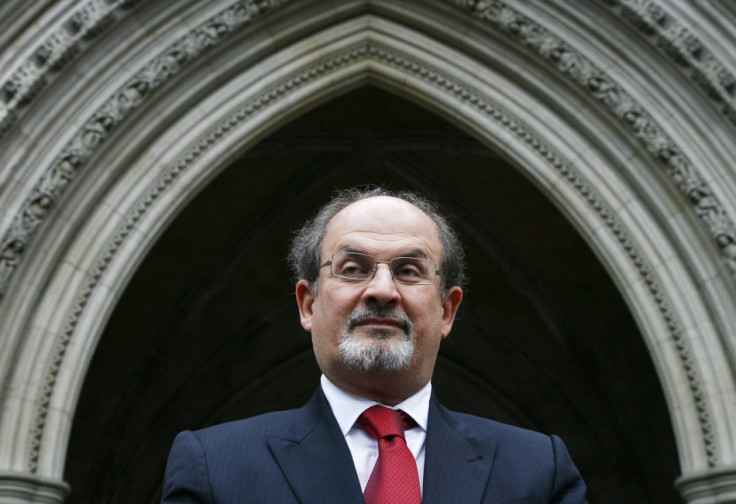Innocence of Muslims Protests: Salman Rushdie Death Bounty up $500,000 [VIDEO]

The fatwa against Salman Rushdie has been revived in the wake of spreading Muslim anger over a crude anti-Islamic film.
A powerful Iranian ayatollah has increased the bounty on the British novelist's head after linking his alleged blasphemy against Islam with his 1988 novel, the Satanic Verses.
Ayatollah Hassan Sanei said the controversial film at the heart of current widespread protests, Innocence of Muslims, would not have been made if Rushdie had been killed before as ordered by the late Iranian leader Ayatollah Ruhollah Khomeini in 1989.
"[The film] won't be the last insulting act as long as Imam Khomeini's historic order on executing the blasphemous Salman Rushdie is not carried out," said Sanei.
Sanei is head of the 15th of Khordad Foundation, the powerful state-run organisation that first offered a $1m reward to whoever carried out the fatwa and killed Rushdie. The bounty now stands at $3.3m (£2m).
"I'm adding another $500,000 to the reward and anyone who carries out this order will immediately receive the whole amount," Sanei said.
"If the imam's order was carried out, the further insults in the form of caricatures, articles and films would not have taken place. The impertinence of the grudge-filled enemies of Islam, which is occurring under the flag of the Great Satan, America, and the racist Zionists, can only be blocked by the absolute administration of this Islamic order.
"The aim [of the fatwa] has been to uproot the anti-Islamic conspiracy and now the necessity for taking this action is even more obvious."
Although the Rushdie affair had been declared "finished" in 1998 by Iran's then president, Mohammad Khatami, the fatwa against the Indian-born writer was never officially lifted.
Sanei's declaration was the latest outburst in the wave of hostility that followed the trailer of the movie that insults the Prophet Mohammed being posted on YouTube.
Violence calming down
The bounty increase was made as protests targeting US and western embassies in North Africa and the Middle East seemed to be calming down.
In another attempt to revive the demonstrations Hezbollah's leader Sheikh Hassan Nasrallah called for fresh protests in Lebanon saying Innocence of Muslims was a worse insult to Islam than Rushdie's novel and the cartoons of the Prophet Muhammad published in a Danish newspaper in 2005.
Made by an alleged extremist Christian Coptic filmmaker, Nakoula Basseley Nakoula, Innocence of Muslims sparked violence across the Muslim and Arab world.
Exploiting the relative peace after days of continued violence, the US evacuated all non-essential staff and family members from its embassies in Sudan and Tunisia.
Marine counter-terrorism units were sent to Libya - where US ambassador Stevens and three other American citizens were killed early on in the riots - and two US warships have been positioned off the North African coast.
© Copyright IBTimes 2024. All rights reserved.























